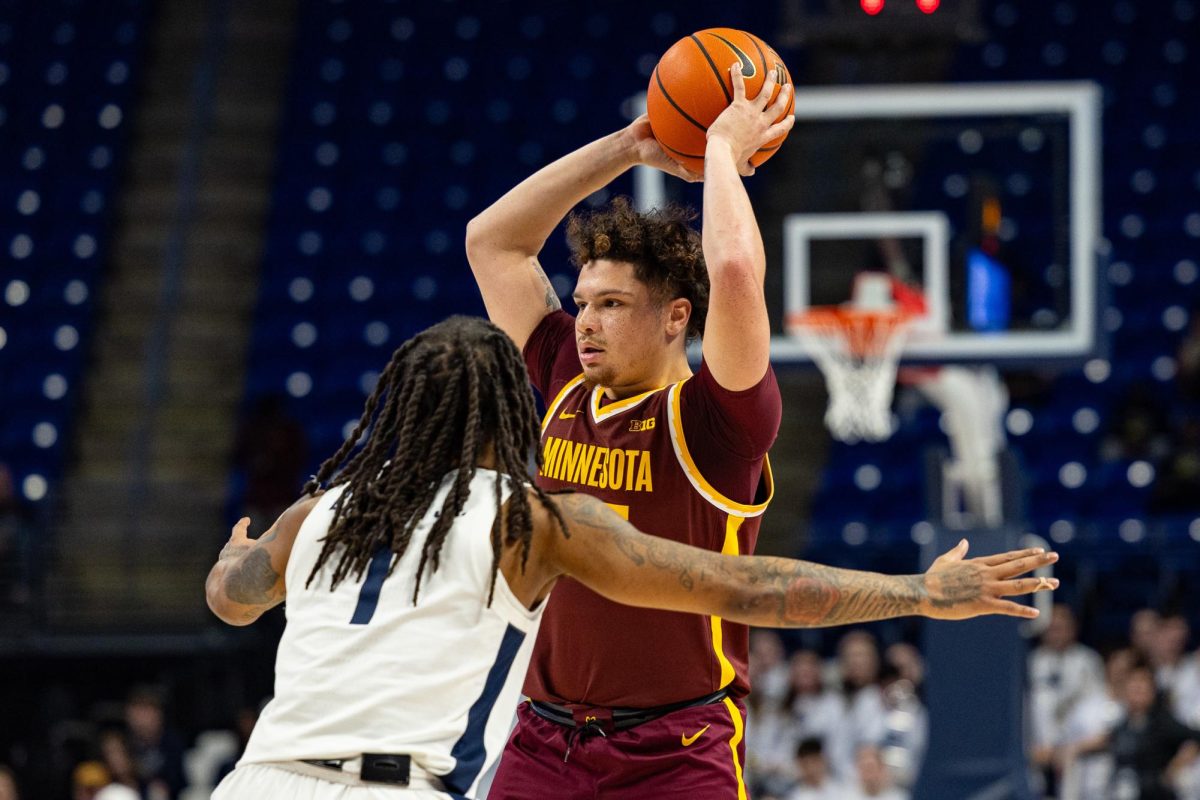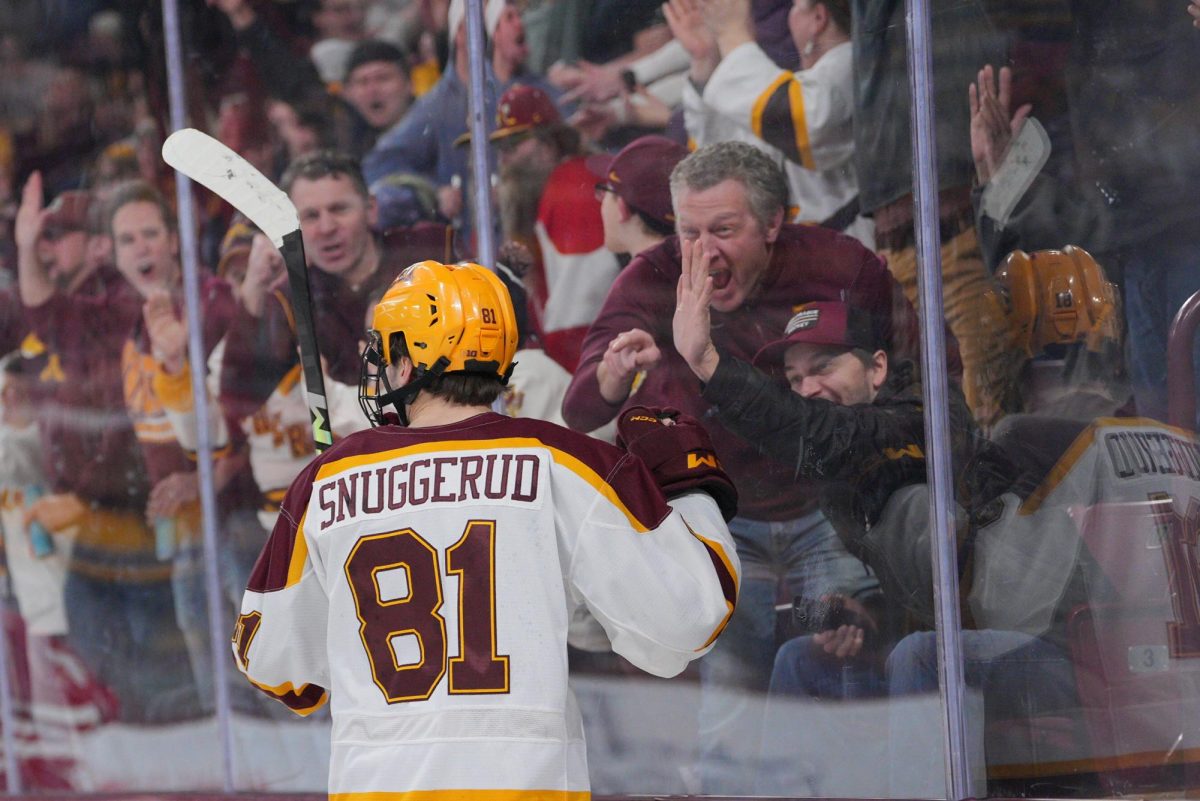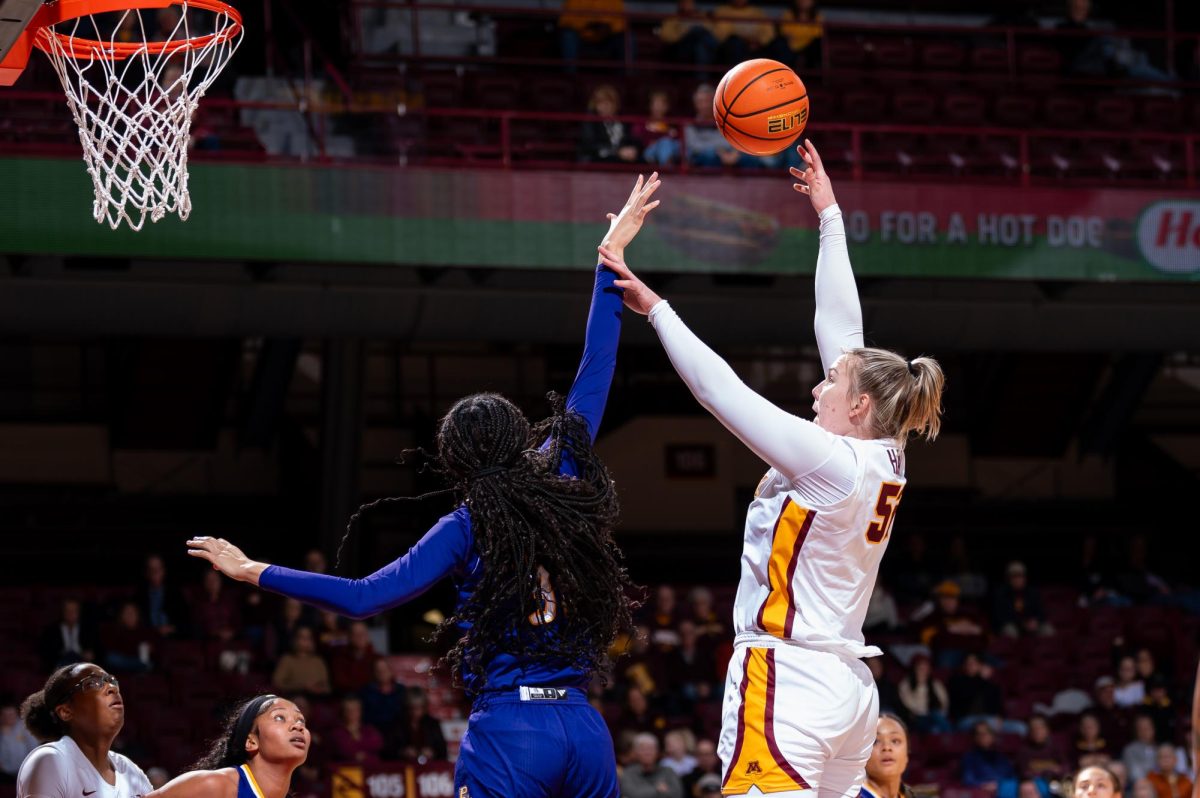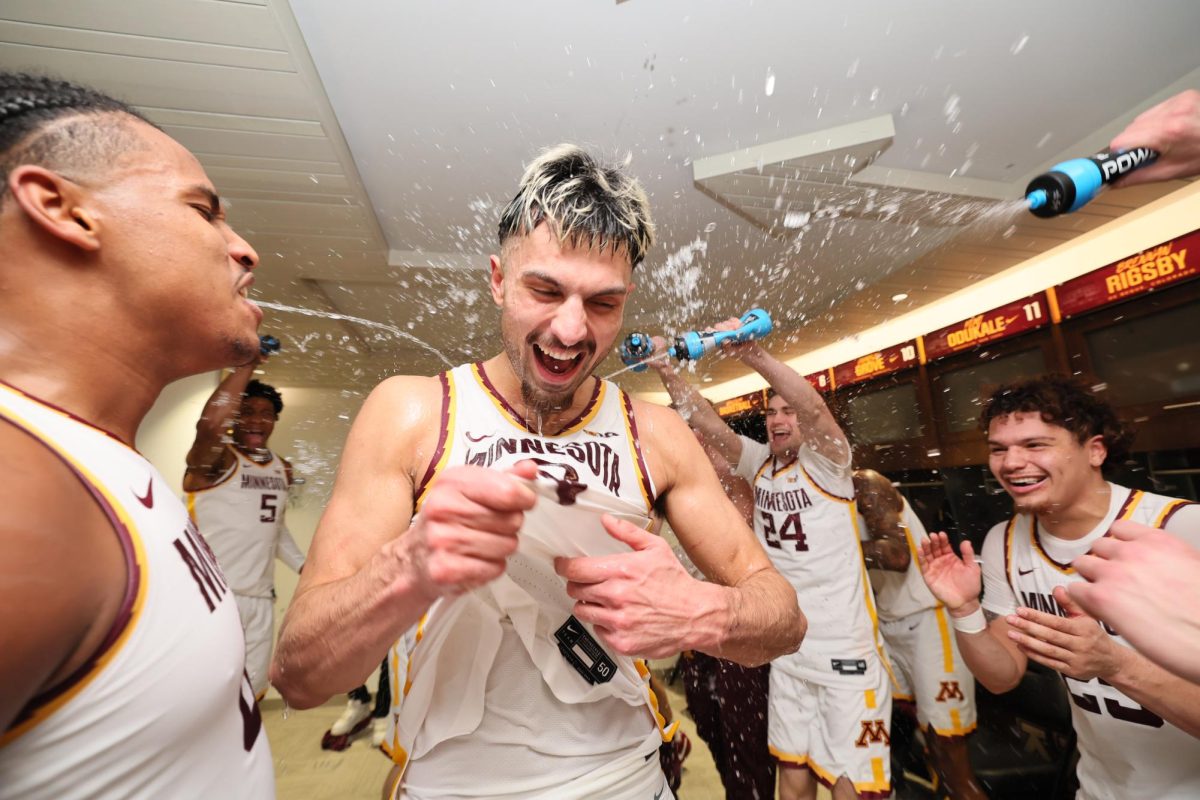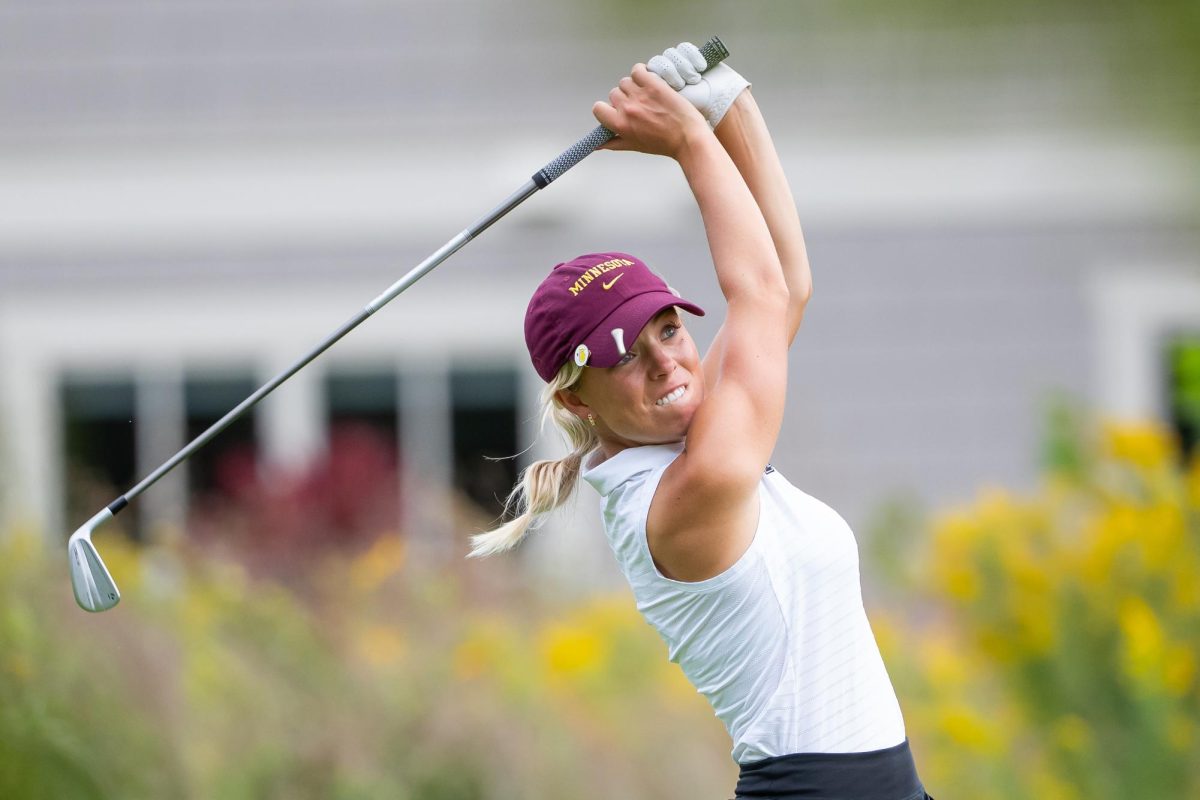Two licensed sports psychologists âÄî dubbed âÄúDr. JâÄù and âÄúDr. CâÄù âÄî will provide in-house care for the University of MinnesotaâÄôs student-athletes.
The UniversityâÄôs athletic department hired the married doctors, Justin and Carlin Anderson, to boost its professionalism.
âÄúWe wanted to take an approach to increase credentials for our support staff,âÄù head athletic trainer Moira Novak said.
The Andersons both have doctorates in counseling psychology with a focus in sports. Carlin Anderson received hers from the University of North Texas, while Justin Anderson earned his from the University of St. Thomas in St. Paul.
They have been trained in treating a variety of mental disorders ranging from clinical depression to eating disorders.
âÄúThere has been a need for these services for many years,âÄù Carlin Anderson said. âÄúJust like in the larger realm of college campuses, this is a national problem.âÄù
Though the Andersons donâÄôt call themselves a traveling psychology team, they have done work around the country and seen first-hand the issues campuses are facing.
âÄúWe have done work with campuses in Texas, Kansas and Tennessee,âÄù Carlin said. âÄúEach one of them had long waiting lists for these services. They were all underfunded.âÄù
An overworked on-campus mental health staff prompted the athletic department to seek out the AndersonâÄôs services.
âÄúWe want student-athletes to work collaboratively with places such as Boynton [Health Service],âÄù Novak said. âÄúBut we realize they have been stretching their services thin already.âÄù
Prior to hiring the Andersons, the University employed sports psychologists who were trained in on-the-field issues like leadership and team building, but could not treat depression and other mental disorders.
That lack of psychological professionalism is why the couple has been brought to the University.
âÄúWe can deal with any on-the-field issues as well,âÄù Justin said. âÄúOur spectrum of services range from game-time anxiety to team building.âÄù
While two psychologists could not possibly service the entirety of the student-athlete population, steps have been taken to train the numerous University sports medical staff members.
The Andersons held a meeting Wednesday morning to help train the medical staff in crisis management, Novak said.
âÄúThis is crucial because our sports medical staff is literally everywhere,âÄù Novak said. âÄúThese psychologists arenâÄôt.âÄù
The training is to help the support staff know when to refer the student-athletes to the psychologists, according to Novak.
âÄúKeeping the Andersons in such close contact will help us, as a staff, figure out how the professionals do it,âÄù Novak said.
Another crucial part of the AndersonâÄôs services is that it is all in-house.
âÄúIf a player tears [his or her] ACL, they donâÄôt need to go far to get that treated,âÄù Justin Anderson said. âÄúWhy not the same for mental health problems?âÄù
The athletic department has already started to introduce the two psychologists to the conglomerate of student-athletes at the University âÄúto make them more approachable,âÄù Novak said. âÄúWe brought them to our student-athlete freshman orientation.âÄù
This type of exposure âÄî particularly with freshmen âÄî is part of an attempt to build a lasting relationship for the student-athletes who spend their entire collegiate career at the University.
Students have already began to call them âÄúDr. JâÄù and âÄúDr. CâÄù instead of the ambiguous Dr. Anderson.
âÄúWe recognize that we are the first line of defense for these student-athletes,âÄù Novak said. âÄúWhether they are in a crisis or having a troubled relationship with a coach, we need to provide them with the best help available.âÄù


